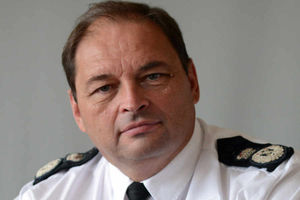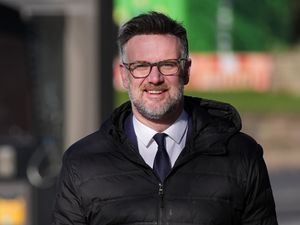275 more police fight sex crimes in the West Midlands
Police have bolstered the number of officers tackling sex crimes across the West Midlands as it emerged the region is a hot spot for sex predators.

Wolverhampton has the second highest rate of convicted sex offenders per person in the entire country - with 377 convicted criminals living in the city.
Figures show there are also high numbers of sex offenders elsewhere in the Black Country, with 348 in Sandwell, 315 in Walsall and 293 in Dudley. There are more than 1,000 sex offenders living in Birmingham and 893 in Staffordshire.
West Midlands Police Chief Constable Chris Sims has now added 275 officers to its Public Protection Unit - the department that deals with sex offences - with a total 793 police officers with 50 civilian staff.
Chief Inspector Michaela Kerr, said: "West Midlands Police recently expanded its Public Protection Unit with 275 additional officers joining the team.
"The number of officers working in Public Protection now accounts for around 10 per cent of the force's total strength - that's a clear indication of our commitment to supporting victims of sex crime, safeguarding vulnerable people, and ensuring offenders face justice.
"We have a dedicated team of specialist officers that work with probation and partner agencies to manage sex offenders."
Across England and Wales, police and probation are currently monitoring 46,102 registered sex offenders.
Latest figures show there are 2,521 sex offenders in the West Midlands.
For every 100,000 people in Wolverhampton, there are 172 sex offenders - an average which is narrowly lower than the highest rate in the country in Hull where the number is 174 per 100,000.
Wolverhampton South East MP Pat McFadden said: "I am sure this information will concern the public and the question I have to ask is why does Wolverhampton have one of the highest rates? What is absolutely paramount is that the police and relevant authorities know who these offenders are and where they live - and that they are actively protecting the public."
In stark contrast, neighbouring South Staffordshire had the lowest number of sex offenders with a rate of 41 per 100,000.
South Staffordshire MP Gavin Williamson said: "The contrast is quite staggering when you consider Wolverhampton and South Staffordshire are neighbouring areas.
"Most people who commit sexual offences tend to return to where they came from when they complete their sentence if they are jail, so it does beg the question what is happening in Wolverhampton.
"I think it is testament to Staffordshire Police's good work and this needs to be kept up. South Staffordshire is a low crime area but these figures will be of concern to those in Wolverhampton."
Between April 2013 and March 2014, 18 sex offenders in Staffordshire were sent back to jail as were 16 in the West Midlands for re-offending or breaching their probation conditions.
Nigel Byford chairman, of West Midlands Multi-Agency Public Protection Arrangements (MAPPA ) - the body that manages sex offenders and dangerous criminals - said: "Serious violent and sexual offending make up a relatively small proportion of all recorded crime. Yet, by their nature, they cause the greatest concern for the community. We cannot entirely remove the risk of harm that offenders present. However, constructive sharing of information, and collaborative approaches to working, mean the agencies operating within MAPPA can - and do - contribute to reducing that risk through the successful management of complex and challenging offenders in our community."
In Staffordshire, a small group of trained and supervised volunteers are working with sex offenders who has served their sentence and are now in the community. The aim is to help prevent re-offending
by creating new life plans and by supporting them.
Temporary Assistant Chief Constable Jonathan Drake, chairman of Staffordshire MAPPA, said: "It is very early days for us in Staffordshire and Stoke, and over the next 12 months we are reviewing its effectiveness and contribution to encouraging safer rehabilitation of offenders who have served their sentence."





